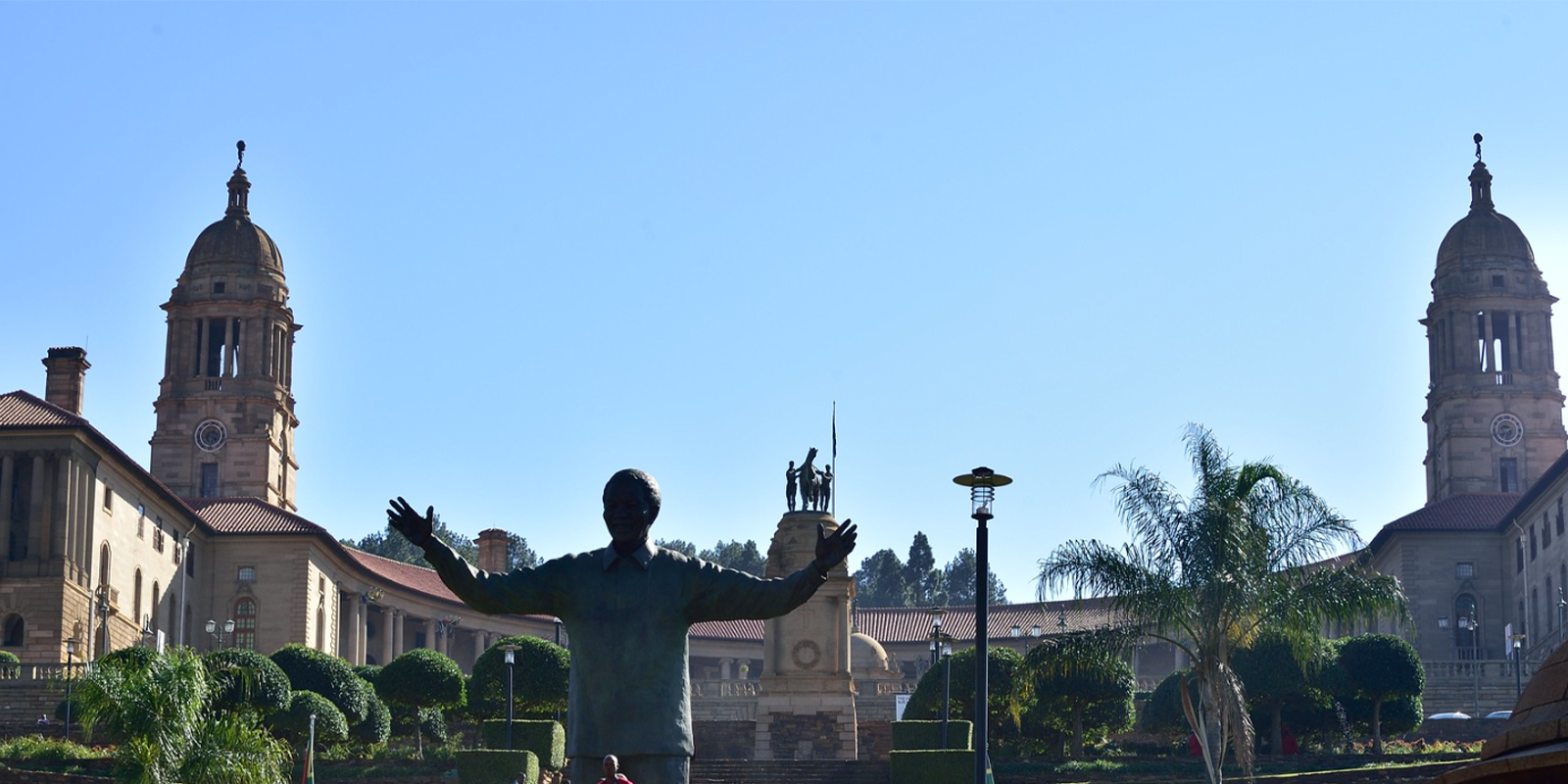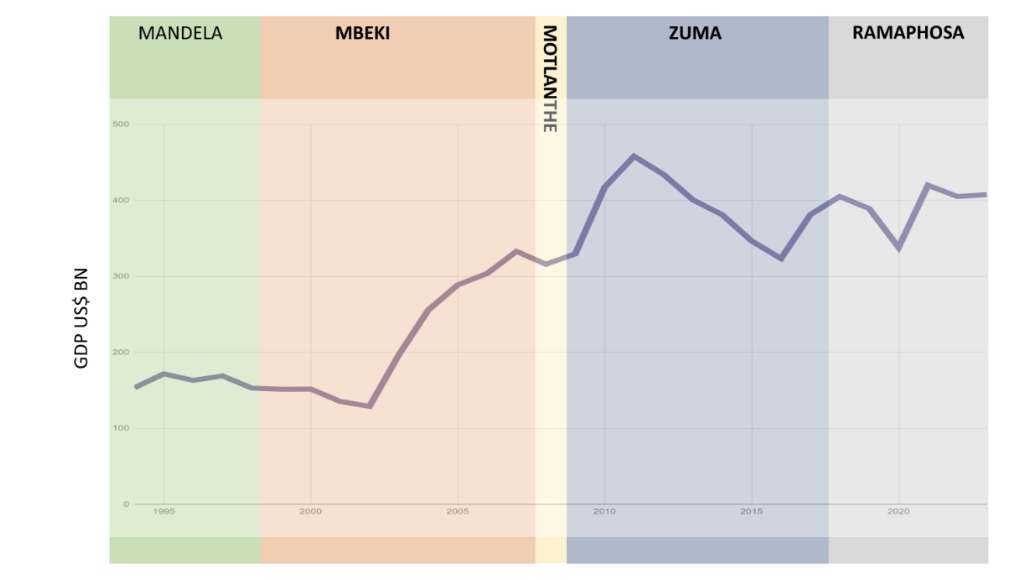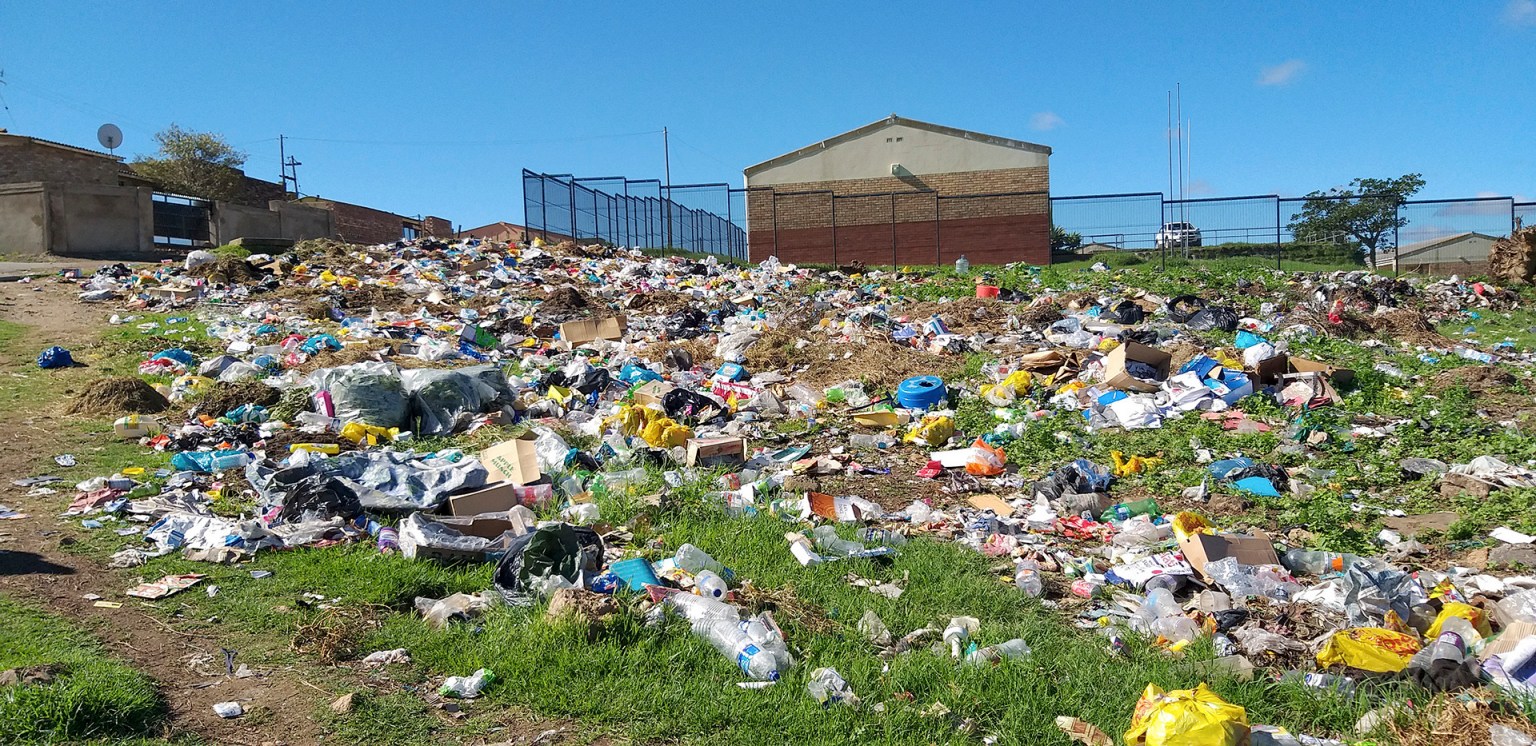News
After 30 Years, South Africa is no Longer the Lodestar of Global Democracy — Here’s Why
The post-apartheid ANC failed to grasp the key mechanics needed to advance the country economically. The need to attract capital investment to grow the economy, and to build a highly competent technocratic class.

Former Director, The Brenthurst Foundation

Former Research Director, The Brenthurst Foundation

Much has been written about democratic South Africa’s first 30 years, most of it focusing on the unfulfilled promise of a post-apartheid dawn and the more recent failure of the sun to rise on a “new dawn” under President Ramaphosa.
What is missing from the debate is the answer to the question: Why has post-apartheid South Africa foundered?
When Nelson Mandela took office on 10 May 1994, the world was at the country’s fingertips. Who else could have played host at a state banquet to Hillary Clinton and Fidel Castro, each equally starry-eyed at the country’s prospects?
Thirty years ago, South Africa embodied the hope that a way could be found to move the world forward, out of its old Cold War dichotomies and into a new era of deep democracy, where the improvement of the lives of the people — not political power-plays — would take centre-stage.
Thirty years later, we remain a free society, but we’re no longer the lodestar of global democracy. We are evidence of how the best intentions can be fatally undermined by those who place power and patronage ahead of accountability.
While most South Africans were elated at democracy’s potential, there were hyenas, to borrow the description of former Cosatu general secretary Zwelinzima Vavi, who saw a myriad of opportunities to enrich themselves and remain above the law.
The roots of this malaise can, sadly, be traced back to Mandela’s presidency. Let’s revive some forgotten history. When the Sarafina scandal erupted, then Minister of Health, Nkosazana Dlamini-Zuma, was hauled before Parliament’s health committee, chaired by none other than Manto Tshabalala-Msimang. She was horrified. She made her way to Nelson Mandela’s office across the cobbles in Tuynhuys where, it is reliably told, she tearfully asked the great man to make it stop.
This was probably the first big turning point in post-apartheid history. Instead of telling her to face the music, which was being meted out by MPs doing their duty — he took her side in a role less about the lives of people than the health of the party, and the inquiry was extinguished.
Protection from on high
The message was clear and immediate — there was protection from on high for the ANC’s royal game. Unsurprisingly, the floodgates opened and by 1999, when President Thabo Mbeki was in office, the country was in the throes of a full-blown corruption scandal related to the arms deal.
This, too, would be swept under the carpet by blunted inquiries, and the likes of ANC MP Andrew Feinstein, who sat on the public accounts committee, would quit in disgust. When prosecutions eventually came, it was the bag-man Schabir Shaik and not the principal, Jacob Zuma, who would take the fall.
By the 2000s, to paraphrase Gordon Gekko, “greed was good” and Mbeki’s right-hand man, Smuts Ngonyama went so far as to state: “I did not struggle to be poor.”
This corruption malaise, which persists in its mutated forms to this day, has played a large role in undermining the advancement of South African democracy and in weakening economic performance.
The Zondo Commission’s report remains startling reading, thousands of pages meticulously documenting the bloody-minded ingenuity of the corrupt and the failure, by omission, of the state to take action against it.
ANC hubris
But is it the whole story? There are other less dramatic but equally substantive reasons why South Africa has not fulfilled its promise.
Foremost among these is hubris. The post-apartheid ANC failed to grasp the key mechanics needed to advance the country economically. Primary among these were two factors: The need to attract capital investment and with it the necessary skills, technology and market knowledge to grow the economy. And the need to build a highly competent technocratic class capable of managing a sophisticated country.
If there was an exception to the rule on the need to attract capital investment, it was to be found in the presidency of Mbeki. Mbeki and his team, including then Finance Minister, Trevor Manuel, clearly understood this priority and shifted footing from the Reconstruction and Development Programme to an altogether “next level” economic programme — The Growth, Employment and Redistribution macroeconomic programme, known by its acronym Gear.
By today’s lazy analytical standards, Gear is viewed as a “neo-liberal” programme that failed the poor in the interests of a rich cabal. The facts tell a very different story.

Source: Trading Economics
As the above graphic clearly illustrates, Mbeki’s presidency oversaw the best economic growth of the post-apartheid era. Gear was introduced in the teeth of the 1998 global financial crisis, but once it had found its feet, it produced the goods. The economy grew by more than 5% for three consecutive years. There was even a budget surplus for two years as tax collection under then SARS boss Pravin Gordhan improved dramatically.
The private sector flourished and employment improved and, with the government’s finances in a healthy position, one of the world’s largest social welfare programmes was expanded.
The Mbeki era was not, however without its demons. There were some deep flaws that would come back to bite South Africa. The aforementioned arms deal scandal. And Mbeki appeared unwilling to use his leverage to halt Zimbabwe’s slide into brutal autocracy as he relied on the internet to peddle a deeply flawed HIV/Aids policy.
He also planted the seeds of future load shedding, passing a white paper on energy reform which would introduce private power generation. When this was stymied by the party’s left, he failed to adopt a plan B and Eskom went for years without adding new generation capacity, something for which he has since publicly apologised. Ironically, his success at driving economic growth would mean the lights would go off in 2008 as Eskom literally ran out of fuel.
The party was happy to overlook all these failings, but Mbeki finally crossed a red line.
He sought to attack the corruption hydra, firing Zuma as his deputy president after the latter’s financial advisor was jailed for bribes related to the arms deal. Zuma was named as the recipient of those bribes, although this is yet to be proven in court, some 25 years later.

Populist politics
It turned out, the Mbeki era was a temporary aberration and soon it was back to business as abnormal. The thought that there might be consequences for corruption was too much for many in the party to bear. A coalition of forces mobilised around a populist agenda, which wrongly caricatured Gear as an elite enrichment scheme in direct contradiction to any economic fact you care to examine, and removed Mbeki.
In alliance with the trade unions and the ANC’s Youth League, some of whose members had recently mooned the cameras at a national conference, Zuma defeated the Mbeki faction at the ANC’s Polokwane conference.
This represented a watershed moment, ushering in an era of populist politics and destabilising the country’s capacity to achieve the twin goals of raising capital investment and building a functional technocracy in the civil service.
Instead, the cadre-deployment machinery swung into full gear and the civil service was expanded with battalions of underskilled cadres being put in charge throughout the state, as skills fled for the private sector or left the country.

Source: Trading Economics
As the above graph shows, Mbeki’s successful containment of debt was quickly undone under Zuma, who spent like there was no tomorrow, a trend which Ramaphosa appears to be powerless to reverse.
The economic consequences have been devastating, with SOEs failing to produce the power or the rail and port logistics needed for a modern economy. Growth has languished around the 1% mark in a good quarter, and the portion of the budget going to paying off debt has grown alarmingly.
The challenge of reversing these trends and returning the economy to properly managed spending and delivery are enormous, and at least as political as they are technical.
It will require a leadership willing to be unpopular with deployed cadres and willing to see off populist criticism that it is implementing conservative economic management. No such leadership exists within the ANC, which shortly faces a coalition choice between the centre or Zuma and the EFF.
But, as Mbeki demonstrated in the 2000s, it is well within the country’s grasp to turn the tide should the right reforms and leadership be in place. We can only vote in hope.
This article originally appeared on Daily Maverick.

